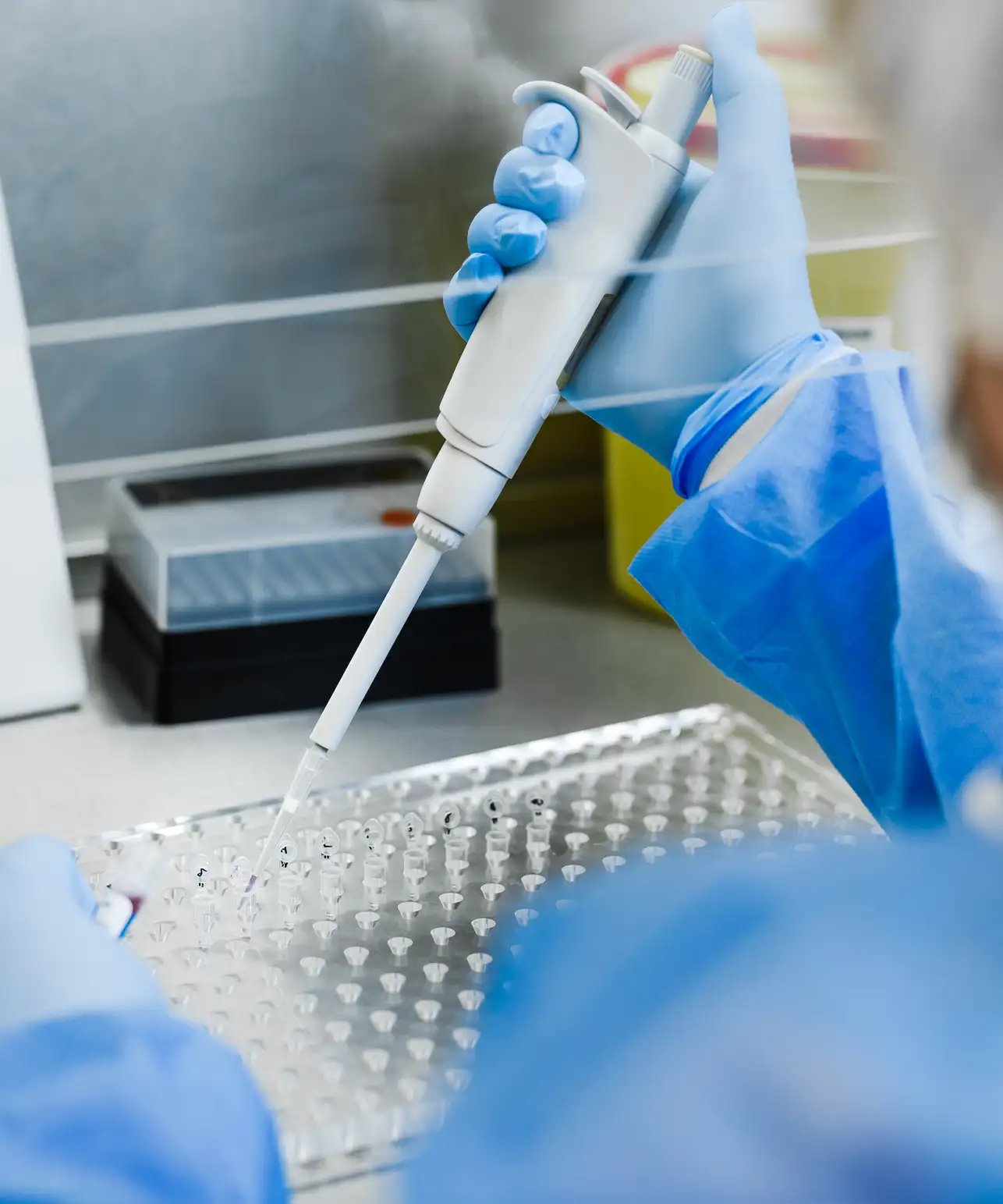Laboratory Information Management System
At SCC Soft Computer, we offer a cutting-edge suite of solutions designed to streamline workflows, enhance productivity, and drive breakthroughs in patient care. Our mission is to revolutionize the way laboratories operate, whether you’re part of a health system, regional hospital, public health service, commercial lab, research facility, blood management organization, or transplant medicine unit.
Enterprise Scale
- Customized modules and product suites designed to meet the unique needs of enterprise laboratories.
- Seamless integration with existing enterprise systems to streamline workflows and enhance interoperability.
- Industry-leading security measures to safeguard sensitive laboratory data and ensure regulatory compliance.
- Dedicated technical support and comprehensive training programs.
Commercial Flexibility
- Flexible modular solutions that cater to the specific needs and budget constraints of smaller labs.
- Scalable cloud-based solutions that enable growth without significant upfront investment in infrastructure.
- Custom workflow engine to automate processes to improve operational efficiency.
- Full suite of outreach and operational solutions to improve customer service and revenue cycle management.
Driving Growth Across Diverse Industries
SCC Soft Computer is dedicated to delivering tailored solutions that enhance efficiency, accuracy, and excellence for clients across a wide range of industries, from complete healthcare systems to commercial labs.
Health Systems
Our solutions help health systems streamline workflows and improve the coordination of patient care, especially in facilities with multiple sites. By unifying systems under a single database, SCC products reduce turnaround times and facilitate seamless operation across different time zones, eliminating the need for multiple systems.
Solutions for Health Systems ›
Regional Hospitals
For regional hospitals, SCC solutions optimize resource utilization and elevate the quality of patient care. Our consistent interface design ensures a smooth user experience, while direct integration with laboratory instruments eliminates the need for middleware, simplifying operations and reducing errors.
Solutions for Regional Hospitals ›
Research
Research laboratories benefit from our solutions through enhanced data sharing and collaboration capabilities, crucial for high-volume testing environments. Our platforms perform real-time data analytics, enabling on-demand research and providing valuable insights that drive scientific discovery.
Solutions for Research ›
Commercial Laboratories
Commercial laboratories can achieve greater accuracy and efficiency in high-volume testing with SCC’s comprehensive solutions. Our LIS streamlines quality control workflows and minimizes the need for human intervention, allowing staff to focus on more critical tasks. Our integrated approach covers both the healthcare and business sides of operations, including revenue cycle management (RCM) for comprehensive operational oversight.
Solutions for Commercial Laboratories ›
Transplant Medicine
SCC Soft Computer’s solutions for Transplant Medicine provide unparalleled accuracy and efficiency, streamlining donor and recipient matching processes to ensure optimal outcomes. Our comprehensive software suite supports the entire transplant workflow, from data management and compliance tracking to real-time analytics, empowering healthcare professionals to deliver life-saving treatments with confidence.
Solutions for Transplant Medicine ›
Public Health
SCC Soft Computer’s solutions for Public Health Laboratories are designed to enhance disease surveillance, streamline testing workflows, and improve data management, ensuring timely and accurate reporting. Our robust software suite empowers public health professionals with advanced analytics and real-time monitoring capabilities, enabling them to respond swiftly and effectively to public health challenges.
Solutions for Public Health ›
Blood Management
SCC Soft Computer’s Blood Management solutions streamline the entire blood supply chain, from donor recruitment to transfusion tracking, ensuring the highest standards of safety and efficiency. Our advanced software suite offers seamless integration with laboratory systems, providing real-time data and analytics to optimize inventory management and enhance patient care.
Solutions for Blood Management ›
About SCC Soft Computer
Founded in 1979 by visionary leader Gilbert Hakim, SCC Soft Computer has established itself as a global pioneer in clinical information management systems. We specialize in providing state-of-the-art laboratory information systems (LIS) that empower healthcare organizations to optimize workflows, enhance patient care, and drive innovation. With a steadfast commitment to excellence, integrity, and customer focus, SCC Soft Computer combines cutting-edge technology with unparalleled support to deliver transformative solutions across diverse healthcare sectors. Our mission is to revolutionize healthcare by enabling laboratories worldwide to achieve unprecedented levels of efficiency and accuracy, ensuring that our clients remain at the forefront of medical advancements.
About UsLaboratory Information Management System
A laboratory information management system supports laboratories in managing workflows, tracking samples, and ensuring compliance with regulatory standards. It centralizes data capture, streamlines operations, and automates routine tasks across clinical, pharmaceutical, and research environments. Laboratories adopt LIMS to minimize manual errors, standardize procedures, and generate reliable, audit-ready records.
Professionals seeking to upskill often pursue a laboratory information management system course to understand the system’s architecture and configuration. These programs teach the fundamentals of system workflows, security protocols, and lab integration strategies. Learners gain exposure to common modules—sample accessioning, QC management, results reporting, and inventory control.
A growing number of vendors provide laboratory information management system software with specialized functionality for different laboratory types. For example, clinical diagnostic labs may prioritize integrations with electronic health records and LIS systems, while research laboratories emphasize specimen lifecycle tracking, chain-of-custody controls, and flexible data models for experimental protocols.
Industry use cases offer clear laboratory information management system examples. Public health agencies use LIMS to manage large-scale surveillance programs, while academic institutions deploy it to track research samples across multi-center studies. In the pharmaceutical sector, LIMS platforms enforce Good Laboratory Practice (GLP) standards and support FDA audit readiness through built-in validation workflows.

Earning a laboratory information management system certification builds credibility in regulated environments. Certification programs typically assess knowledge of system architecture, validation, audit trails, and regulatory compliance. Candidates may also be evaluated on their ability to implement change control processes and handle data integrity risks. Employers often require certification for roles involving system administration, quality oversight, or LIMS project leadership.
The demand for skilled professionals continues to grow, with laboratory information management system jobs appearing across healthcare, biotechnology, and contract research sectors. Titles include LIMS analyst, systems administrator, compliance manager, and validation engineer. Candidates with domain-specific knowledge—such as molecular diagnostics or biobanking—are especially competitive, particularly when they bring hands-on system experience or certification credentials.
While technical configuration remains a core skill, LIMS professionals are increasingly expected to collaborate across departments, support cross-functional data flows, and participate in risk mitigation. Understanding the nuances of regulatory frameworks such as HIPAA, CLIA, and ISO/IEC 17025 is now standard. Those with practical experience and formal training position themselves as indispensable assets within data-centric laboratory operations.
Laboratory information management systems continue to evolve to meet the data governance and automation needs of modern labs. Whether applied in high-throughput diagnostics or exploratory R&D environments, the system’s role is foundational to quality, efficiency, and compliance.
Laboratory Information Management System Training
Professionals entering or advancing in laboratory informatics often begin with structured laboratory information management system training. These programs provide critical exposure to system architecture, workflow configuration, user management, and regulatory alignment. Training is foundational for laboratory technologists, IT specialists, and quality personnel involved in LIMS implementation, maintenance, or compliance auditing.
The availability of laboratory information management system training online has expanded access to learners globally. Online platforms offer flexibility for working professionals, with asynchronous modules on sample tracking, test result workflows, inventory control, and system customization. These programs often include virtual sandbox environments for hands-on practice, allowing users to configure mock workflows, apply permissions, and test system behavior across different lab scenarios.
Some learners prefer in-person or hybrid formats. Searches for laboratory information management system training near me reflect interest in localized instruction—often offered by universities, regional training providers, or vendor-led workshops. These sessions may incorporate case-based learning, onsite system demos, and role-specific modules for technical staff versus compliance leads.
Course curricula are typically aligned to core LIMS functions: accessioning, sample batching, analytical result management, chain-of-custody tracking, audit trail review, and SOP-based task routing. Advanced training covers system validation, database queries, interface setup, and report scripting. Participants are also introduced to regulatory frameworks relevant to LIMS such as CLIA, CAP, ISO/IEC 17025, and 21 CFR Part 11.

For those pursuing credentials, LIMS training certification tracks offer a structured path. Certification pathways may require completion of progressive levels—basic, advanced, and administrator—and include scenario-based assessments. Certification ensures candidates not only understand LIMS features but can also apply them in real-world settings, such as preparing for audits, troubleshooting integration failures, or adapting workflows to evolving regulatory needs.
Choosing a training provider requires careful consideration. Look for programs that offer vendor-neutral instruction for foundational topics, followed by platform-specific modules as needed. Vendor-certified courses provide critical insights for labs using proprietary systems, but independent programs may better serve those seeking transferable skills. Ensure that instructors have hands-on field experience, especially in regulated environments.
Training should include instruction on validation documentation practices, configuration management, and user acceptance testing protocols. Labs undergoing implementation or upgrades benefit when internal teams are trained not just on day-to-day use but also on system governance—defining access roles, audit readiness standards, and configuration control procedures.
Cross-training staff across roles—technologists, quality officers, system admins—prevents knowledge silos and strengthens LIMS sustainability. Well-trained users reduce system errors, accelerate go-live timelines, and improve data integrity. For organizations preparing for new LIMS rollouts or upgrades, comprehensive training shortens the learning curve and improves ROI on system investments.
Laboratory information management system training serves both as a workforce development tool and a risk mitigation strategy. In environments where accuracy, traceability, and regulatory compliance are non-negotiable, trained users are the backbone of effective system adoption and long-term operational success.
Laboratory Information Management System Certification
Achieving a laboratory information management system certification validates professional expertise in LIMS design, operation, and regulatory alignment. Certification distinguishes candidates who can demonstrate both technical proficiency and applied understanding of compliance-driven laboratory environments. Employers increasingly use certification as a benchmark for hiring and promotion, particularly for roles tied to quality assurance, system administration, and IT governance.
Pursuing a laboratory information management system certification online offers flexibility for working professionals and organizations operating across time zones. Online certification tracks often include modular learning, progress assessments, and final project evaluations. These programs typically cover foundational LIMS components such as system configuration, test result handling, audit trail maintenance, and change management documentation.
Understanding the laboratory information management system certification cost is key to selecting the right program. Fees vary widely depending on the provider, program length, and depth of material covered. Entry-level certifications may cost a few hundred dollars, while advanced certifications—with platform-specific modules, supervised exams, and credentialing maintenance—can exceed several thousand. Budgeting should account not only for the course itself but for time allocated to study, practice environments, and post-certification upkeep.
For learners looking to pair convenience with community, options for laboratory information management system certification near me may include regional training centers, university-affiliated programs, or vendor-specific bootcamps. These in-person or hybrid offerings often include cohort-based learning and direct support from instructors with domain experience. Some programs culminate in capstone projects or scenario-based assessments designed to simulate real-world implementation or compliance tasks.
Certification content typically spans several key domains. These include system administration (user roles, access controls), compliance configuration (audit trails, SOP alignment), test lifecycle management (sample accessioning, batch control), and integration readiness (interface handling, data exchange protocols). Programs may also test knowledge of relevant standards, such as CLIA, ISO/IEC 17025, GxP, and FDA 21 CFR Part 11.
Certification ensures not only technical capability but also readiness to participate in internal audits, system validations, and vendor assessments. Certified professionals are often tasked with leading LIMS implementation, managing laboratory data integrity audits, or conducting user acceptance testing. Certification also aligns with standard operating procedures in regulated labs, where training records and credentials must be maintained and verifiable.
For laboratory directors and compliance officers, staffing teams with certified LIMS professionals reduces operational risk. Certified administrators can proactively identify configuration flaws, apply patch updates correctly, and document system changes according to validation protocols. Their knowledge supports faster root cause analysis, effective CAPA responses, and defensible audit trails.
In regulated environments, certification may be formally recognized during inspections. Whether through vendor-led training, third-party certification boards, or academic partnerships, recognized credentials reinforce an organization’s commitment to system governance, data accuracy, and procedural accountability.
A laboratory information management system certification is more than a line on a résumé—it’s an operational necessity in environments where data quality, traceability, and compliance define success.
LIMS (Laboratory)
A LIMS (laboratory) system serves as the digital backbone for managing sample workflows, test results, quality metrics, and regulatory documentation. While the acronym stands for lab information management system, the term “LIMS” is frequently used interchangeably with laboratory software platforms in both clinical and research settings. Labs looking for new laboratory information system vendors often find LIMS vendors in their search. Core LIMS functions include specimen accessioning, test tracking, result reporting, and audit trail management, but modern systems have evolved far beyond these basics.
Organizations evaluating LIMS software focus on critical capabilities such as multi-instrument integration, multi-site configuration, and flexible role-based access. Effective systems support high-throughput testing while maintaining compliance with standards such as CLIA, CAP, ISO/IEC 17025, or 21 CFR Part 11. Laboratory managers rely on LIMS for more than just operational efficiency; it is now essential for data governance, traceability, and interdepartmental reporting.
Many commercial LIMS laboratory software platforms support modular implementation, allowing laboratories to deploy only the components required for their scope of work—clinical chemistry, microbiology, toxicology, or molecular diagnostics. Modules may include inventory management, barcoding systems, sample chain-of-custody, data analytics, and results distribution tools. A well-configured system enables seamless handoffs between departments, such as histology and pathology, or genetics and pharmacy.
The demand for LIMS laboratory certification aligns with increasing regulatory scrutiny and digital infrastructure investments. Certification ensures a laboratory’s LIMS meets compliance standards and that personnel have validated proficiency with the platform. While certification may refer to user credentials, it also applies to system validation—verifying configuration, data handling, and reporting mechanisms meet applicable legal and operational requirements.
Organizations evaluating platforms look to real-world LIMS examples to benchmark performance and scalability. For instance, a national diagnostic chain might use LIMS to standardize workflows across hundreds of satellite labs, while a university hospital may tailor its system to support both clinical trials and patient care. Public health departments leverage LIMS for outbreak tracking, specimen surveillance, and biorepository management. These examples illustrate LIMS adaptability across domains.
A core decision point is selecting between out-of-the-box and highly configurable LIMS system models. Turnkey systems may deploy faster but limit flexibility. Configurable platforms require deeper training and validation efforts but offer superior alignment with lab-specific processes. Regardless of architecture, successful LIMS systems support data integrity through time-stamped audit logs, version control, and secure authentication.
Modern LIMS solutions extend their utility through integration with LIS systems, electronic health records, billing modules, and regulatory reporting portals. Labs managing genomic data, for example, must support the secure transfer and annotation of complex datasets, which LIMS systems increasingly accommodate through API-based interoperability and structured data warehousing.
Selecting the right LIMS (laboratory) platform depends on multiple variables—test volume, specialization, regulatory exposure, and IT infrastructure. As LIMS becomes central to laboratory operations, it is no longer viewed as optional software but as a mission-critical system that ensures reproducibility, compliance, and data value.
Best LIMS Software
The best LIMS software combines scalability, compliance support, and domain-specific configurability with LIMS instrument interfacing. It must operate reliably across global sites, integrate with enterprise applications, and adapt to evolving regulatory mandates. Evaluation criteria include vendor track record, system architecture, validation protocols, and user-configurable workflows.
The LIMS software full form, laboratory information management system, defines its primary function: structured management of laboratory operations. But “best” is contextual. In clinical labs, that means automated interfacing with analyzers and EHRs. In pharma, it means supporting validated methods and GxP documentation. In public health, it means multi-agency collaboration and scalable case tracking.
Organizations often begin their vendor search with “Top 10 laboratory information management systems” lists. While helpful as a starting point, these rankings frequently favor brand visibility over technical suitability. Analysts may prioritize key features like cloud deployment or AI analytics without considering compliance depth or domain support. Buyers should treat these lists as directional, not prescriptive.
True evaluation requires a rigorous RFI/RFP process. Beyond core features—sample tracking, result validation, audit logging—the best systems deliver user-configurable workflows, external system integrations, and robust security protocols. Support for HL7, FHIR, or REST APIs is essential in modern lab ecosystems. Multi-tenancy, multilingual UIs, and role-based access round out the core architectural strengths.
Market leaders offer modular platforms that scale across use cases. A high-throughput diagnostic lab may deploy microbiology, hematology, and molecular modules together, while a pharma manufacturer may activate only stability and QC functionality. The most effective LIMS systems enable seamless module expansion without refactoring core configurations.
Validation support is non-negotiable. Leading LIMS vendors provide pre-packaged IQ/OQ scripts, risk-based validation templates, and audit support documentation. They also offer version-controlled updates with backward compatibility assurances, minimizing revalidation burdens. Global support teams and multilingual training environments are differentiators, particularly for multisite deployments.
While features attract attention, long-term value depends on vendor viability. Sustainable development roadmaps, transparent upgrade policies, and proven deployment frameworks are more important than novelty. The best systems are boring in the best way—they perform consistently, stay current with regulatory changes, and grow with the organization.
Investing in top-tier LIMS is not about chasing features. It’s about securing a platform that meets your lab’s operational, compliance, and scalability demands with clarity and reliability. Evaluate systems based on strategic alignment, not just software brochures.
What is LIMS Used For?
Understanding what is LIMS used for begins with its foundational role in laboratory sample and laboratory data management. A laboratory information management system centralizes the tracking, processing, and reporting of laboratory operations. Its primary use is to streamline workflows, maintain data integrity, enforce compliance, and increase operational efficiency across clinical, research, environmental, and pharmaceutical labs.
In a laboratory, what is LIMS used for centers on end-to-end specimen tracking. From sample receipt to final report generation, the system maintains a full chain of custody. LIMS platforms automate test routing based on specimen type, monitor turnaround times, flag outliers or invalid entries, and ensure results are delivered to the correct recipients—whether internal stakeholders or external healthcare providers.
In a pharmacy setting, what is LIMS used for in pharmacy includes tracking compounding processes, managing controlled substance inventory, and generating batch-specific documentation. Pharmacogenomics workflows are another major application, where LIMS supports gene-drug interaction testing, personalized dosage optimization, and secure report distribution to prescribers. Regulatory oversight in pharmacy operations, including DEA and FDA requirements, necessitates validated LIMS systems with audit-ready outputs.
The term LIMS software encompasses more than just interface screens and data entry forms. It includes built-in quality control workflows, user activity logs, role-based access controls, and real-time alerts. With increasing demand for interoperability, LIMS software integrates with instruments (through middleware or direct interfaces), third-party data platforms, and electronic health records. This ensures data consistency across systems and improves reporting accuracy.
Industry-specific LIMS examples reveal the breadth of system utility. In food safety labs, LIMS tracks contaminant testing and compliance with FSMA. Environmental labs use LIMS to manage sampling events across multiple sites and track regulatory reporting to the EPA. Clinical diagnostic labs apply LIMS to process high-volume COVID-19, HIV, or oncology tests while meeting turnaround and accreditation targets. Each use case demonstrates how the system adapts to field-specific workflows, instruments, and compliance demands.
Professionals often ask about LIMS meaning beyond the acronym. Functionally, LIMS signifies more than information management—it represents a data integrity framework. It is designed to support repeatability, traceability, and defensibility in scientific and regulated processes. Whether for accreditation audits, litigation support, or patient safety reviews, the integrity of LIMS-managed data is paramount.
Operationally, what is LIMS used for in laboratory environments also includes automation of alerts and reflex testing protocols, monitoring reagent consumption, scheduling maintenance, and managing user competency documentation. All activities generate data that can be visualized through dashboards or exported for regulatory submission, KPI monitoring, or executive reporting.
As laboratories adopt more complex testing methodologies—from NGS to mass spectrometry—the role of LIMS evolves. It now encompasses workflow orchestration, real-time data streaming, and predictive analytics support. The system’s value lies not just in what it records, but how it connects operations, compliance, and insights.
What is LIMS used for today reflects a broader laboratory transformation—one in which data is not just recorded but governed, analyzed, and leveraged for operational resilience and scientific advancement.
Laboratory Information Systems Examples
A laboratory information system (LIS) enables healthcare organizations to manage clinical data workflows with speed, consistency, and scale. Unlike paper-based records or generic EHR modules, LIS platforms are purpose-built to support laboratory operations, interfacing with analyzers, automating reporting, and standardizing quality assurance protocols.
Common examples span a spectrum of clinical and diagnostic disciplines. In hospital labs, LIS software streamlines test ordering, sample tracking, and result verification, reducing manual errors and ensuring compliance with CLIA, CAP, and HIPAA standards. Microbiology labs use LIS modules tailored for culture tracking, antimicrobial susceptibility panels, and automated alerts tied to infection control. Molecular diagnostics labs benefit from LIS integration with genetic sequencers and bioinformatics pipelines—essential in high-volume environments requiring precise sample lineage and variant annotation.
Blood bank LIS modules incorporate FDA 21 CFR Part 11 requirements, trace donor-recipient matching, and generate compliance audit trails. Pathology departments often rely on LIS systems to manage grossing notes, frozen sections, and synoptic reports, interfacing with dictation tools and digital imaging archives.
Reference labs typically operate multi-tenant LIS environments supporting multiple clients across geographies. These configurations demand scalable architecture with multi-site ordering, branded reporting, and client-specific routing rules. In pharma-sponsored trials, LIS examples include systems configured for investigational protocol handling, controlled blinding, and secure regulatory data sharing.
Many organizations summarize their LIS use cases in laboratory information management system PPT decks, focusing on value demonstration for internal stakeholders. These presentations often highlight implementation timelines, interface maps, specimen lifecycle models, and benchmarks in turnaround time or data integrity. When evaluating these examples, look for systems that include automated instrument interfacing, audit trails, HL7/FHIR connectivity, and rules-based workflow automation.
While LIS examples vary by specialty and size, the best systems share common attributes: interoperability with clinical and financial systems, traceability from order to result, and role-based access aligned with laboratory functions. Modern LIS platforms go beyond basic result entry—they orchestrate the entire diagnostic lifecycle.
LIMS Software in Pharma
Pharmaceutical laboratories require LIMS software that adheres to strict regulatory frameworks while supporting high-volume testing, data integrity, and process standardization. In these environments, LIMS plays a critical role in managing everything from raw material testing to final product release, all under the scrutiny of GxP, FDA 21 CFR Part 11, EMA Annex 11, and ICH Q10 guidelines.
Pharma LIMS configurations differ substantially from clinical LIMS or LIS deployments. The focus is on batch records, specifications, audit trails, and version control. LIMS platforms in pharma must support validated workflows with predefined test methods, instrument calibration schedules, and deviation tracking. Systems are typically integrated with electronic batch record (EBR) systems, MES platforms, and ERP tools like SAP or Oracle. This interoperability ensures data consistency across manufacturing, QA/QC, and regulatory departments.
Pharmaceutical companies also depend on LIMS to support method development, stability studies, and environmental monitoring. For each of these applications, data must be searchable, retrievable, and defensible in audits. LIMS enables trend analysis for out-of-specification (OOS) or out-of-trend (OOT) results, a foundational requirement for quality risk management.
In formulation and analytical development labs, LIMS supports R&D efforts by documenting test designs, reagent lot usage, and instrument utilization rates. It allows scientists to compare method performance across trials and streamline method validation. For labs supporting regulatory submissions, LIMS ensures data is fully traceable, version-locked, and exportable in formats aligned with eCTD and IDMP requirements.
For Contract Development and Manufacturing Organizations (CDMOs), LIMS platforms must offer multi-client security controls, flexible sample lifecycle rules, and customizable reporting templates. These features allow pharma clients to audit data flows and compliance without gaining access to proprietary infrastructure or competing project data.
Pharmaceutical LIMS deployments prioritizes validation. Each configuration, integration, and update undergo risk-based validation per GAMP 5 guidelines. Vendor audit documentation, including IQ/OQ/PQ templates and SOP libraries, is a procurement requirement. Failure to validate these systems jeopardizes compliance and introduces regulatory risk.
The adoption of LIMS software in pharma continues to expand as digital maturity becomes a strategic imperative. AI-driven QC trend analysis, predictive equipment maintenance, and global lab network harmonization depend on data architecture that LIMS systems enable. For pharmaceutical manufacturers, LIMS is no longer a lab-only tool—it’s an enterprise data backbone.
Explore Laboratory Information Systems from SCC Soft Computer
Laboratories seeking more than general-purpose software turn to SCC Soft Computer for configurable, compliance-aligned laboratory informatics platforms. Each SCC system serves a specialized function while integrating seamlessly into enterprise lab environments through secure interfaces, reduced human error, centralized data architecture, and regulatory alignment.
Every SCC software solution supports long-term sustainability through vendor-led validation support, user training programs, and role-specific configuration capabilities. SCC’s focus on interoperability, audit trail integrity, and standards-based design ensures that its solutions scale with the demands of evolving laboratory environments.
Laboratories evaluating systems for certification readiness, operational expansion, or modernization initiatives can use these product pages to guide their next steps. SCC Soft Computer provides not only the software foundation but also the compliance and training infrastructure to support laboratory excellence across clinical and research domains.










